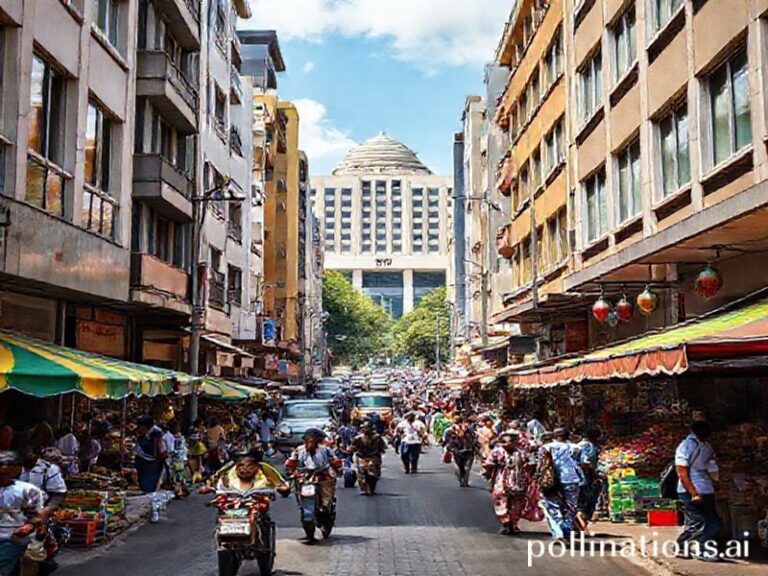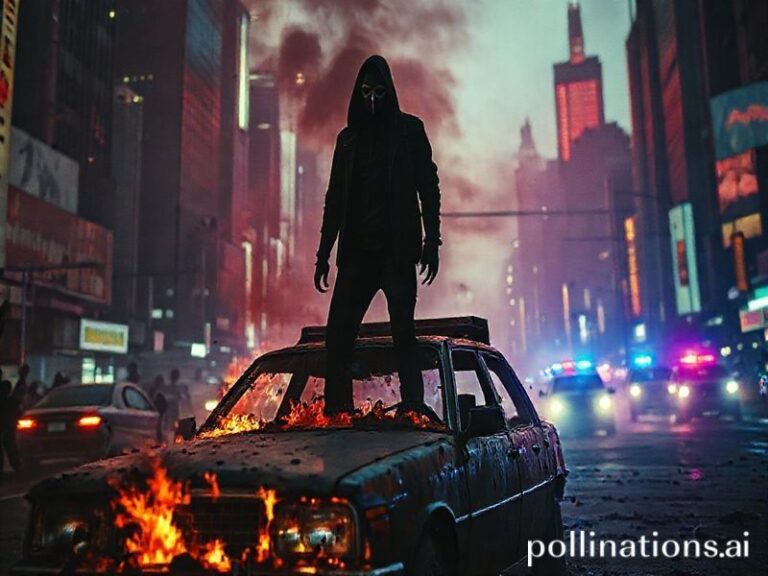Moldova: Europe’s Next Afterthought or Russia’s Latest Headache?
MOLDOVA: THE WORLD’S MOST INTERESTING FOOTNOTE TRIES TO TURN THE PAGE
By Our Correspondent, currently hiding from both Russian and Romanian linguists in Chișinău
Somewhere between the Carpathians and the collective international yawn, Moldova has spent three decades perfecting the art of being forgotten. Sandwiched between Ukraine’s ongoing pyrotechnics and Romania’s EU-funded smugness, this sliver of land—roughly the size of Maryland with half the charisma—has become the geopolitical equivalent of the middle seat on a transatlantic flight: cramped, vaguely aromatic, and nobody chooses it on purpose.
Yet 2024 insists on dragging Moldova back into the headlines, mostly because headlines elsewhere are occupied with bigger explosions. The West, having exhausted synonyms for “concern” over Ukraine, now casts around for the next plucky underdog to champion between brunch and budget negotiations. Enter Moldova, stage left, clutching a wine bottle and a Soviet-era identity crisis.
President Maia Sandu—Harvard-educated, pro-EU, and refreshingly unburdened by charisma—has called a referendum on EU membership for the autumn. The timing is exquisite: Brussels is desperate to prove enlargement isn’t dead, Washington needs a win that doesn’t involve aircraft carriers, and Moscow is keen to remind everyone that “sphere of influence” is not just a decorative term. Cue the circus.
Globally, Moldova’s vote is being sold as a litmus test for European resolve. In reality, it’s more like checking if the patient has a pulse after the anesthetic has worn off. Should the referendum pass, Moldova will join the EU’s waiting room—currently overcrowded with Western Balkans states trading cigarettes and war stories—while Russia experiments with new types of gray-zone heartburn. Should it fail, analysts will solemnly declare the death of liberal democracy before lunch and move on. Either outcome will be summarized in a TED talk within six months.
The strategic stakes, however, are less abstract than the PowerPoint suggests. Moldova hosts the ex-Soviet region’s equivalent of a dodgy Airbnb: Transnistria, a breakaway strip still decorated with Lenin statues and unpaid gas bills. Roughly 1,500 Russian troops lounge there under the guise of “peacekeeping,” like houseguests who brought Kalashnikovs instead of wine. A pro-EU Moldova tightens the noose around Transnistria’s smuggling routes—everything from cigarettes to, allegedly, human kidneys—while a pro-Russian pivot keeps the black-market bazaar humming. Somewhere in Washington, a sanctions bureaucrat just woke up in a cold sweat.
Meanwhile, the global economy has discovered Moldovan wine—cheap, plentiful, and tasting faintly of existential dread. Exports to the UK and Canada have spiked, rebranded as “freedom vintages” by marketing majors who’ve never been east of Vienna. Sommeliers in Brooklyn now describe a 2019 Rara Neagră as having “notes of post-colonial anxiety with a NATO finish.” Investors nod solemnly and buy three cases, secure in the knowledge that virtue signaling pairs well with charcuterie.
The broader significance, stripped of marketing gloss, is that Moldova offers a rare real-time experiment: can a country survive being everyone else’s pawn while pretending it’s a player? The answer will determine whether small states in the 21st century can still write their own footnotes, or whether they resign themselves to being annotations in someone else’s epic. For now, Moldova gamely juggles IMF loans, Russian threats, and Romanian cousins offering unsolicited family reunions.
As the referendum looms, diplomats in Brussels practice concerned expressions in the mirror, oligarchs in Moscow rehearse new hybrid-war choreography, and ordinary Moldovans stockpile both wine and patience. Whatever happens, the world will briefly glance east, murmur “how quaint,” and scroll on. Moldova, accustomed to invisibility, will return to the shadows—either emboldened by a European future or resigned to perpetual buffer-zone purgatory.
In the end, the joke may be on the rest of us: while superpowers measure influence in missile ranges and trade routes, Moldova has already weaponized obscurity. Not every country can threaten global stability simply by existing, but then again, not every country is the world’s most interesting footnote. Cheers to that—pass the freedom wine.







